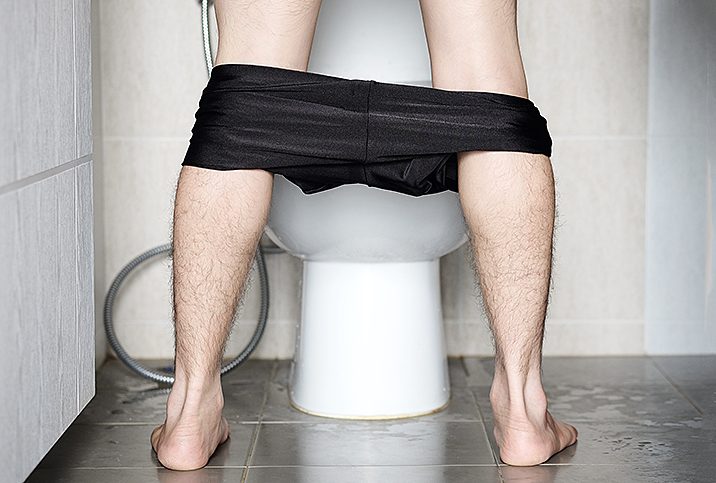Running Can Lead to Stress Urinary Incontinence

Running for exercise is great. Uncontrolled peeing in your pants is not. Unfortunately, running and other high-impact exercises have been linked to stress urinary incontinence (SUI).
Incontinence is the inability to stop urination. Stress incontinence occurs when sudden “stress” on the bladder—a physical impact, such as coughing or running—triggers involuntary urination.
SUI is always a risk, yes, but certain strategies can help you prevent and manage it. You can keep running.
Why running?
Running is one of the most popular forms of exercise, enjoyed by at least 47 million Americans, and maybe as many as 56 million, and for good reason. Running and jogging are easy to do without access to a gym, and there’s no end to how you can personalize the experience.
You can run solo in the great outdoors or on a treadmill, or you can join other runners for a community experience. And you can run any time of day, any time of year, especially if you’re brave enough for inclement weather. You can listen to music, an audiobook or podcast while you run for a little escape, or you can use the time to practice mindfulness and lose yourself in nature.
Running is also an excellent form of cardiovascular exercise, which helps support a healthy weight, strengthen muscles and build stamina. Running lowers cholesterol and blood pressure, and supports hormone regulation and immune and brain function.
Here are some more benefits of running:
- Lowers the risk of diabetes, cardiovascular disease and many cancers.
- Linked to improved sleep, reduced depression risk, self esteem and well-being.
- Studies have shown that runners benefit from a 25 to 40 percent lower risk of premature mortality than non-runners.
- Adds an average of three years to your lifespan.
The negative: urinary incontinence
Running is a high-impact activity, which is great for bones but not so great for the pelvic girdle. A woman’s pelvic floor is especially susceptible to the effect of pavement or trail pounding.
Stress urinary incontinence occurs when physical actions put pressure on the bladder and is most common in women who are older than 65, overweight or pregnant. However, certain exercises—such as running, gymnastics and other hard vertical-hitting movements—can also cause SUI. As an example, a 2014 study found that 45.5 percent of female runners and cross-country skiers were suffering with leakage.
Unfortunately, once your pelvic floor is out of whack and you’re having issues, leakage can occur anytime and be caused by a number of triggers: laughing, coughing, sneezing, standing and, oh yes, definitely sex.
What to do
If you’re having problems with SUI, see your doctor, who will ensure that there are no other underlying issues and talk to you about options and treatments. The doctor may refer you to a physical therapist, who can help you strengthen and balance your pelvic and abdominal muscles, reduce abdominal pressure and strengthen the transverse abdominal muscles with exercises such as plank variations.
Strengthening your perineal muscles will be instrumental, and Kegels will be the exercise of choice, although this alone may not solve the issue. To practice Kegels, or perineal exercises, contract your pelvic floor muscles as if stopping urination, hold the contraction for 10 seconds and release. Strive for sets of 10.
Hip and glute strengthening, bladder retraining and adjusting your running form may help, as well. Breathing exercises that support synergy between the diaphragm and abdominal muscles are also beneficial.
Keep exercising
The good news is you don't necessarily have to stop running or doing any other high-impact exercise that may be causing SUI.
Look for strategies to improve your situation so you can still keep up your favorite exercise. For example, take a short break and then try running again while you maintain your new perineal strength training regimen and breathing exercises.
When it comes to sex, the best advice is to try not to worry too much. On dates, wear a pad or absorbent underwear if it will help your confidence. If you’re going to have sex, empty your bladder first, and avoid positions that have you bouncing vertically. If you’re comfortable doing so, tell your partner what’s going on: You’ll feel better that it’s out in the open, and then you can relax and enjoy yourself.
Running can be an amazing way to stay healthy and strong. Even if it leads to stress urinary incontinence, try to relax; it’s a common condition and solutions are available. Don’t let a little urine ruin your running, or your sex life.


















